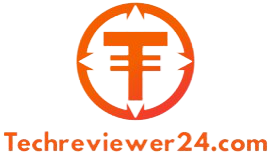Launched in 2017, Polygon is an Ethereum layer-2 protocol and framework to create interconnected blockchain ecosystems. It is a decentralized Ethereum scaling platform that does not compromise the security to facilitate developers to deploy scalable and user-convenient dApps with low transaction fees. It supplies the infrastructure needed for Web3 and thus, promotes the growth of Web3 applications. Polygon focuses on serving as a multi-chain platform to scale Ethereum and tackle cost, speed, and clogged network challenges. MATIC is Polygon’s native crypto token.
Features of Polygon
- Scalability
- Sovereignty in Blockchain networks
- Developer-friendly
- User experience
- Security
- Ethereum compatibility
- Modularity
- Interoperability
Polygon Development Services
1. Polygon Chain development
The Polygon network can be used as a framework and protocol to create Ethereum-compatible blockchain networks, known as Polygon Chains. These Polygon chains can be categorized into two types – Secured chains and Stand-alone chains.
- Secured Chains – The secure chains leverage the ‘security as service’ to set up their validator pool. It is considered the most secured chain as it receives direct security from Ethereum. On the other hand, a team of validators can also offer security through Zk Rollups, Optimistic Rollups, Polygon Proof-of-Stake and Validum chains.
- Stand-alone Chains – Supported by Polygon, Stand-alone chains permit the networks to achieve full autonomy and control of their security levels. Stand-alone chains are independent and flexible because it is used for sovereign blockchain networks.
2. dApps Development
With Polygon, you can create Ethereum-compatible decentralized applications. Developers can take full advantage of Polygon’s SDKs and developer’s tools to launch their business-specific customized dApps. Decentralized applications built on Polygon are interoperable, more scalable, and powerful as it combines the core features of Ethereum and the scaling benefits.
3. Wallet Development
Crypto-assets in the Polygon chain are sent and received using a Polygon wallet. It enables users to trade and transfer cryptocurrencies safely with MATIC tokens listed on global cryptocurrency exchanges. Metamask, WalletConnect, and Coinbase Wallet are the available Polygon wallets.
4. Smart Contract Development
Polygon smart contract are flexible and Ethereum-compatible and thus offer the benefits of both Ethereum and Polygon. It is developed and deployed using the programming languages, Solidity and Vyper. With Polygon, you can design, develop and implement smart contracts to boost your business audit and architecture speed.
5. NFT Marketplace Development
With a surge in NFTs, there is high traffic to prominent NFT marketplaces. As the demand increases, you can create your marketplace with Polygon.
Polygon can assist you in building a multi-chain compatible NFT marketplace that provides scalability, security, adaptability and interoperability. NFT marketplace built with Polygon offers the full potential of Ethereum’s Efficiency.
Conclusion
Polygon focuses on serving as a multi-chain platform to scale Ethereum and tackle cost, speed, and clogged network challenges. It fosters the growth of Web3 and provides the right infrastructure needed for Web3 applications. Blending the features of Ethereum with Polygon’s scaling benefits can offer you amazing solutions to build more efficient and profitable projects.

